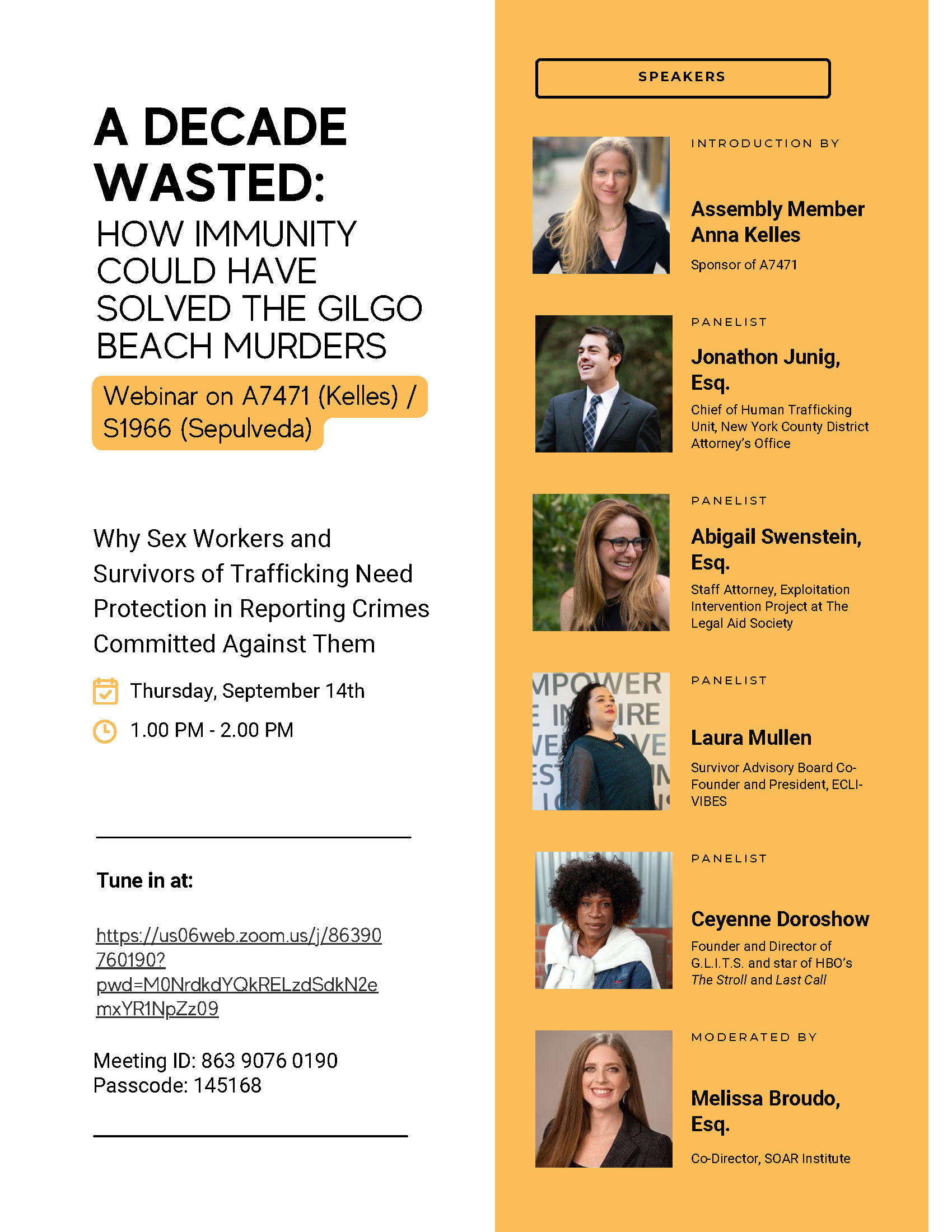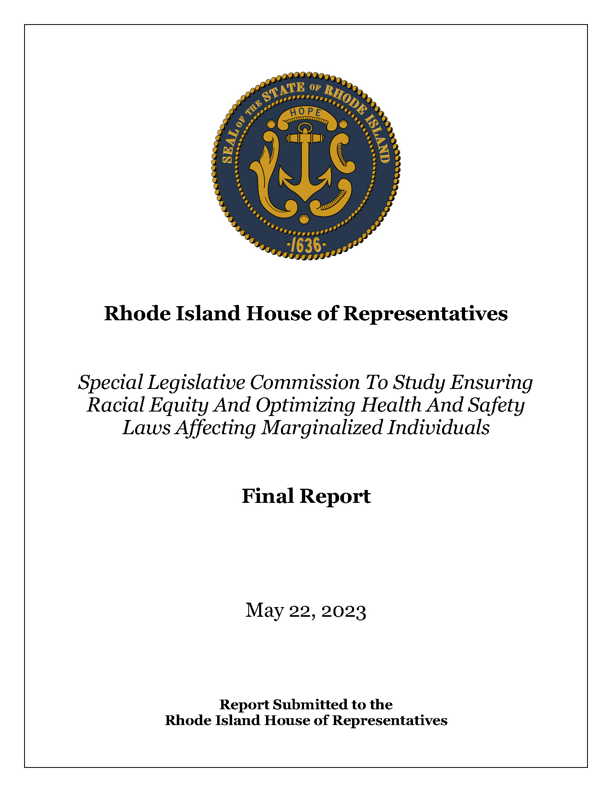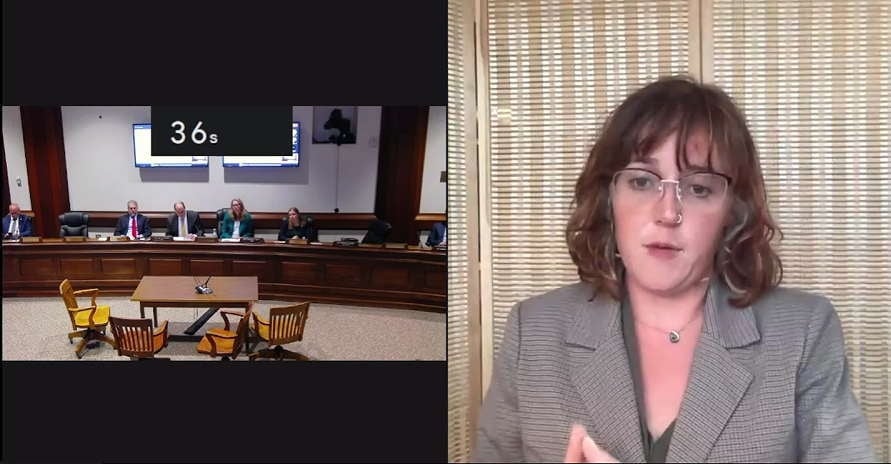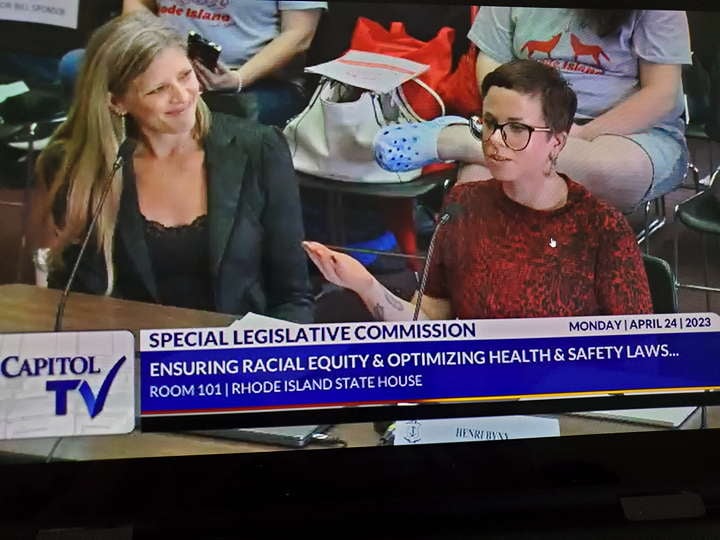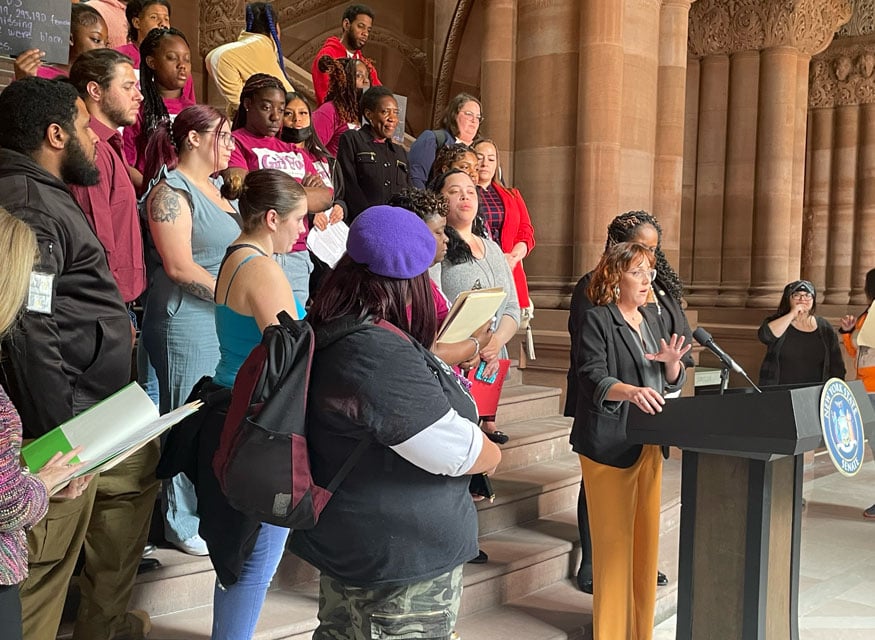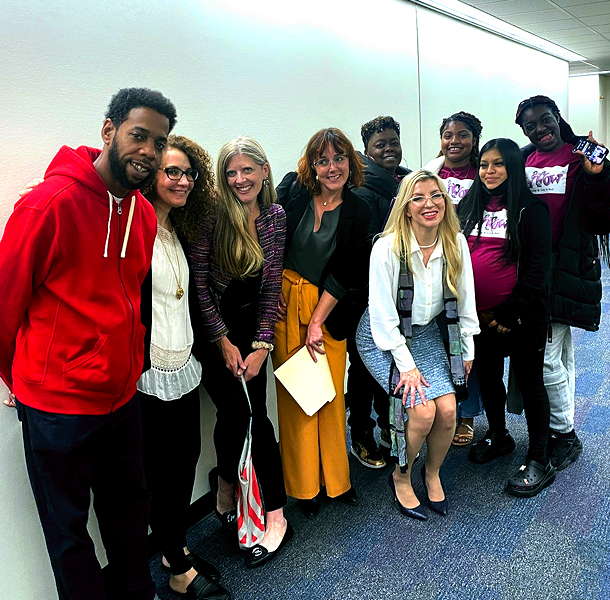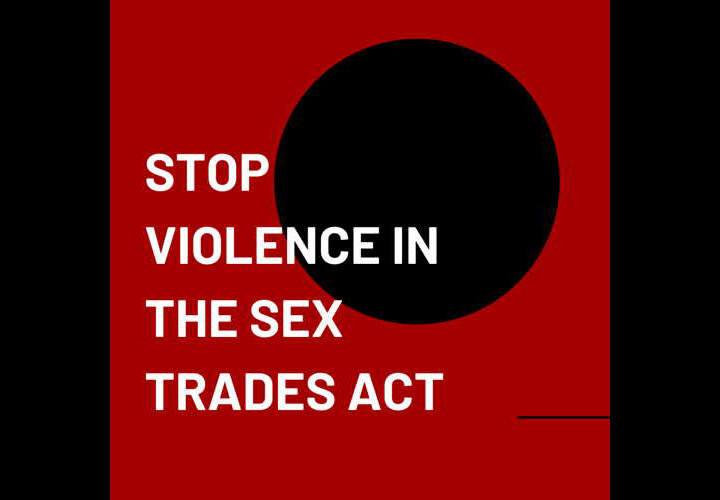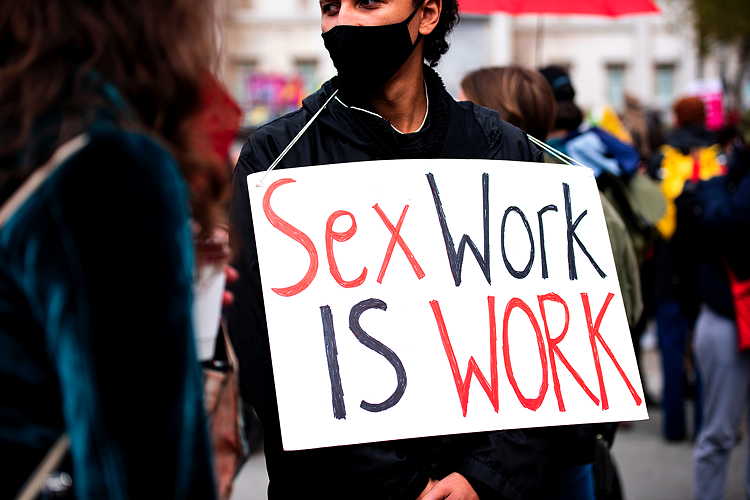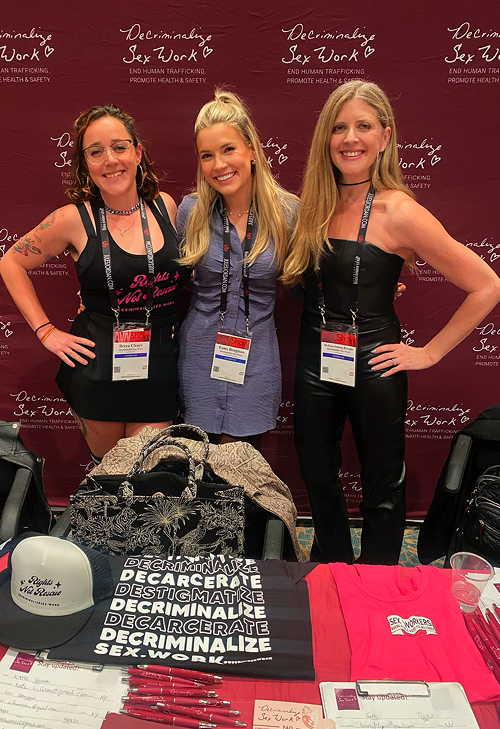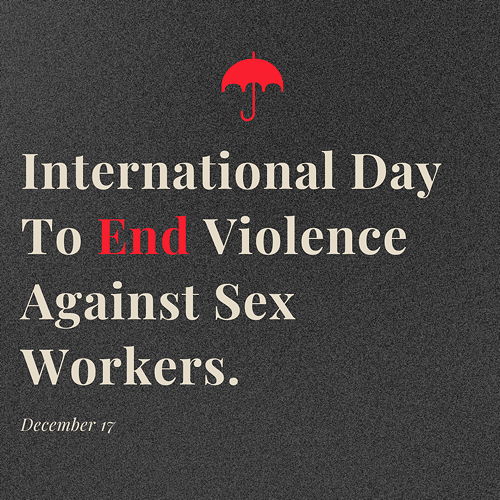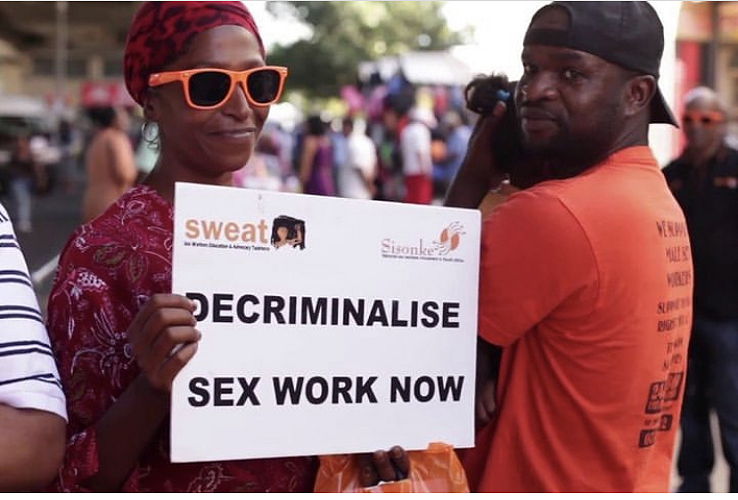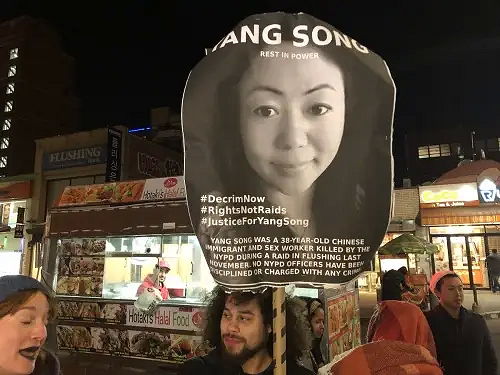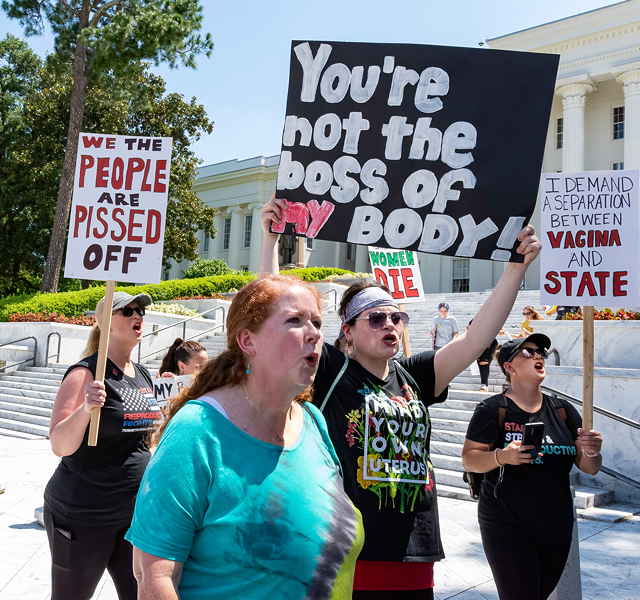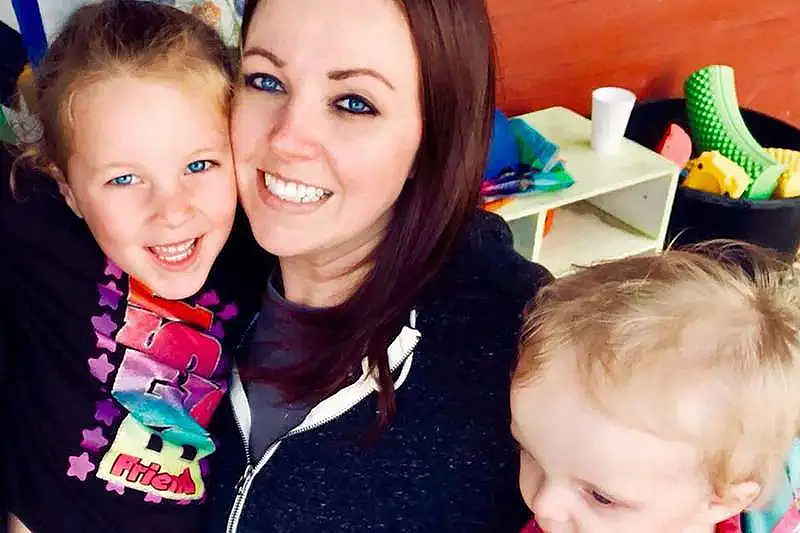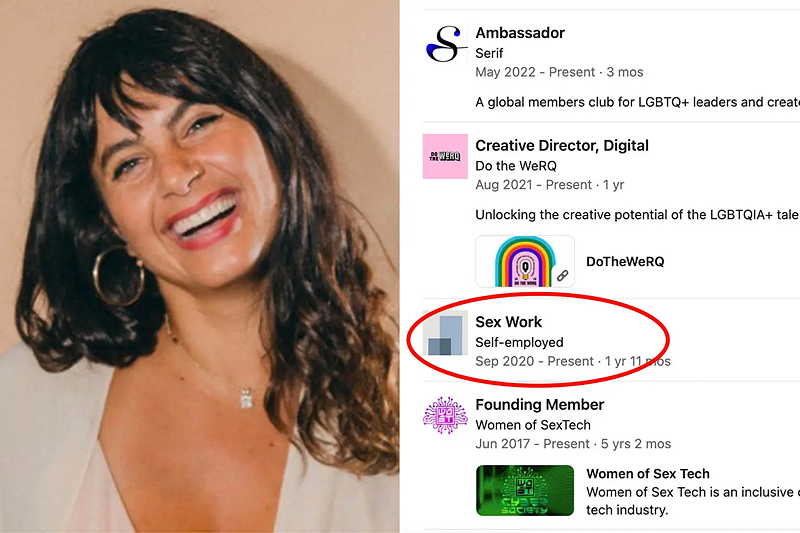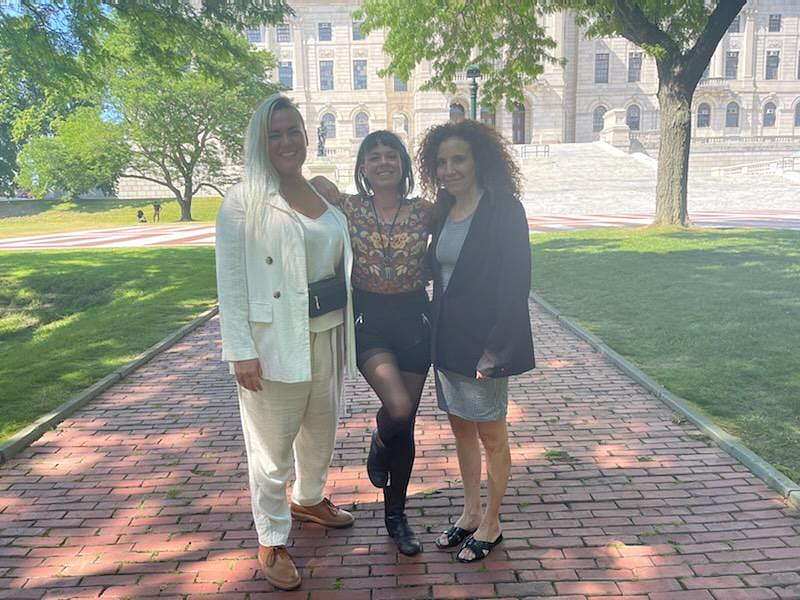January 24, 2024
Decriminalize Sex Work (DSW) headed to Vegas for the second year in a row to attend the Adult Video News (AVN) Awards in Las Vegas, the largest adult entertainment expo and trade show in the country. The AVN expo welcomes industry professionals, content creators, and fans alike to attend the convention. This open attendance policy not only allows fans to meet their favorite creators in person, but also allows the general public to engage in important conversations about ethical porn consumption, new laws affecting the adult industry, and the need to decriminalize consensual adult sex work in the United States.
DSW Staff Attorney Rebecca Cleary, Community Engagement Consultant Henri Bynx, and Development Manager Esmé Bengtson attended the expo. They were able to meet with content creators, academics, industry executives, and fans to discuss a wide range of topics including the difference between legalization and decriminalization, the threat of the Entrapment Model, and what the prominence of AI means for pornography.
In 48 states in the U.S., prostitution remains completely criminalized. Nevada legalized prostitution in 1971; however, it is only legal in Nevada’s smallest counties and must occur in a legal brothel. These restrictive laws mean that if a sex worker is working anywhere other than one of the few remaining brothels in the state, they are subject to arrest. Maine altered its prostitution laws in 2023 by enacting Entrapment Legislation. This new law criminalizes sex workers’ clients while removing criminal penalties for the sex workers themselves. Unambiguous data from countries that have enacted this type of legislation shows a clear correlation between laws that criminalize clients and an increase in violence, STIs, and exploitation within the sex industry. The failings of the prostitution laws in Nevada and Maine demonstrate that the full decriminalization of consensual adult sex work is the only way to improve public health and safety and reduce exploitation. The attendees at AVN agree, the United States’ approach to prostitution is outdated and harmful.
While in Vegas, DSW staff attended the University of Nevada, Las Vegas’ (UNLV) launch event for their new collection, Sexual Entertainment and Economies. The purpose of the archive is to preserve the history of sexual entertainment, culture, and economies in Southern Nevada and beyond. The collection will include materials on sex workers rights and activism, feminist entrepreneurship, adult film and media, and the history of Nevada’s legal brothel industry. The launch event featured panels on sex worker representation, research, and resistance in the age of FOSTA/SESTA and the politics, practice, and pedagogy of adult entertainment. It was wonderful to see an academic setting engage in an informed and intersectional conversation about sex work while affirming that the history of sex workers is American history and deserves to be preserved.
DSW Community Engagement Consultant Henri Bynx was interviewed by a number of outlets while attending the convention. During one interview, Bynx gave the following compelling quote, “One of the reasons why we like to come to places like this (AVN) is because activating the consumers of sex work is really important to us. We want to make sure people are engaged ethically with the content they’re consuming and are looking out for the rights of content creators and service providers. It provides a really organic mode of connection and a safe space for people to talk about something you typically wouldn’t discuss over the dinner table.” AVN marked a productive start to the 2024 conference season. Thank you to everyone that visited the Decriminalize Sex Work booth, and welcome to our new newsletter subscribers — we’re thrilled to have you!

DSW Staff Attorney Rebecca Cleary, content creator and advocate @onlypomma, DSW Development Manager Esmé Bengtson and DSW Community Engagement Consultant Henri Bynx pose in front of the DSW booth at AVN.
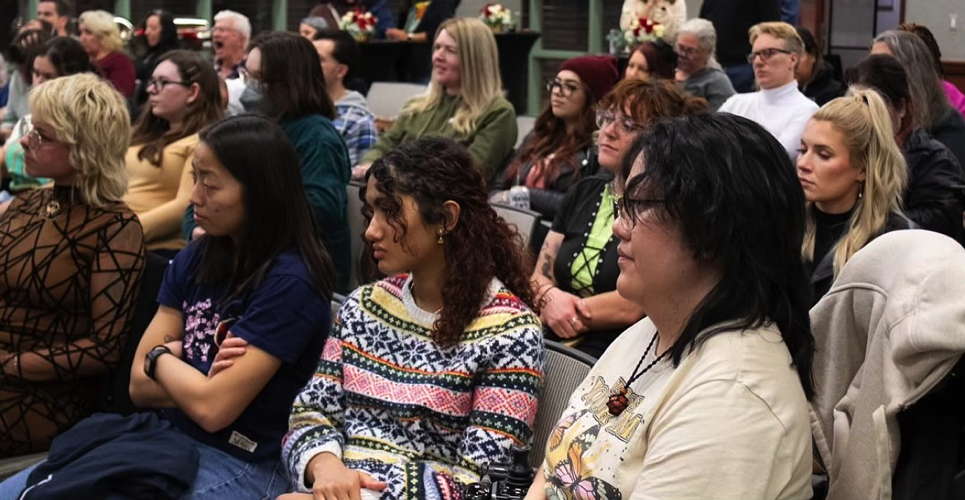
While in Las Vegas, DSW staff attend the launch of the UNLV Special Collections and Archives’ new collecting Initiative: Sexual Entertainment and Economies.
DSW Newsletter #51 (January 2024)
January Is Human Trafficking Awareness Month
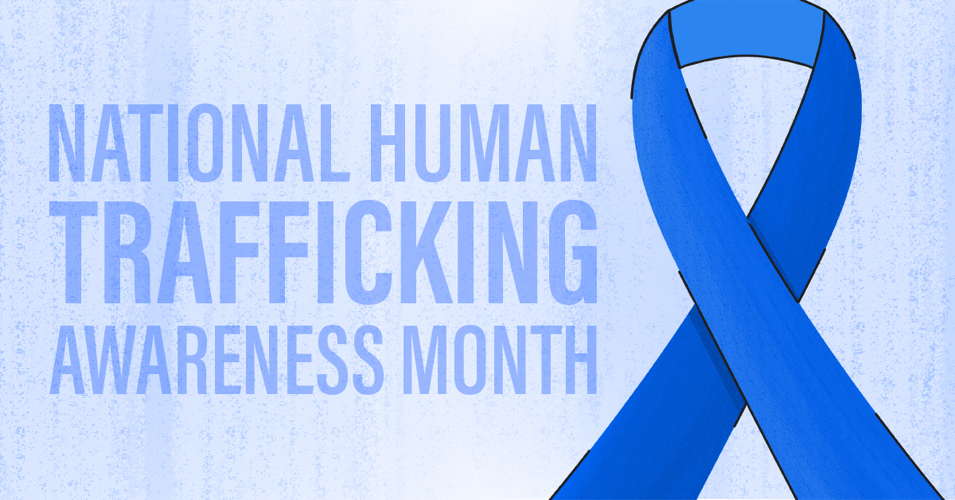
VT Bill Aims To End Housing Discrimination Against Sex Workers

DSW Attends Adult Video News Awards in Las Vegas for Second Consecutive Year

DSW Welcomes MPH Intern


